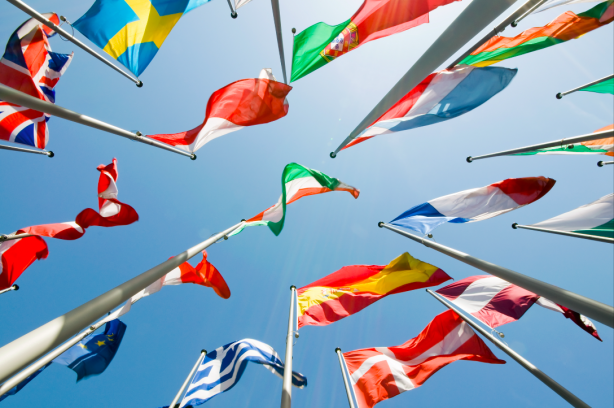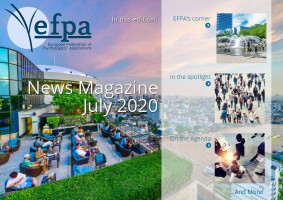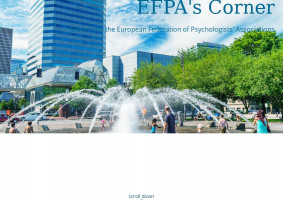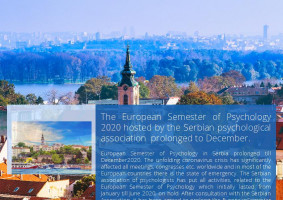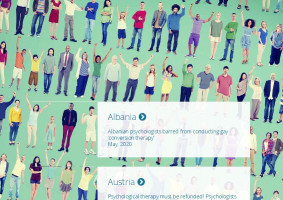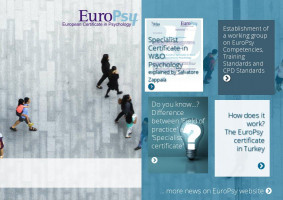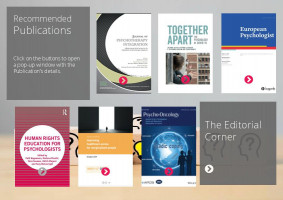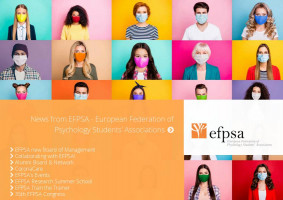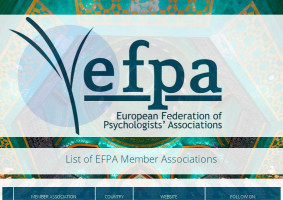_w736_h502_1.jpg)
EFPA and H-WORK
Multilevel interventions to promote mental health in SME’s and Public Workplaces
H-Work.eu
EFPA is one of the 14 partners in the H_Work EU project which started with a kickoff meeting on January 16-17, 2020 at the University of Bologna UNIBO. 45 representatives of the 14 different partners met to work on team building, collect ideas and plan future work.
-
UNIBO with its excellent team led by Prof. Luka Pietrantoni is taking care of the project management and coordination as well as exploiting the H-WORK Toolkits introducing new products and services. UNIBO will also ensure that the H-WORK project will meet the ethics requirements.
This project has received funding from the European Union’s Horizon 2020 research and innovation programme under grant agreement No 847386 (period Jan 2020 – June 2023). The H-WORK consortium brings together broad multi-disciplinary expertise that unites the leading knowledge in the field of occupational health, methodology, policy development and communication, while at the same time provides additional expertise in advanced technologies and innovation.
The challenge
European and global reports indicate an increase in the spread and severity of mental health problems among the general population in the recent years, thus imposing a major burden on individuals, society and economy across the EU countries.The Scope
H-WORK project has the purpose of designing, implementing and validating effective multi-level assessment and intervention toolkits, evaluating individual and organisational outcomes of the adopted measures and provide further innovative products and services. The aim is to effectively promote mental health, along with policy recommendations for employers, occupational health professionals and policy makers.The Concept
The main project actions concern the development of a protocol dedicated to the evaluation of psychosocial risk factors in the workplace; testing the effectiveness of a set of multi-level interventions and developing a protocol able to verify the procedural aspects of the interventions and the economic impact on the life of the organization involved.EFPA’s task
EFPA will analyse current EU policies regarding mental health promotion in the workplace, collecting relevant information about the legal frameworks in order to underline strenghts and weaknesses of the actual legislations. EFPA will also create, manage and exploit the H-WORK Toolkits and Innovation Platform. It will also provide recommendations and policy briefs for employers, occupational health professionals and policy makers, organise workshops and a final event.-
News from the project:
Calm through the crisis: the initiative from HelloBetter
The Corona crisis is taking a lot out of all of us. Many of us feel tense, worried, anxious or experience low mood due to the coronavirus crisis and its consequences. The initiative Calm through the crisis from HelloBetter helps people to strengthen their mental health during the Covid-19 pandemic.
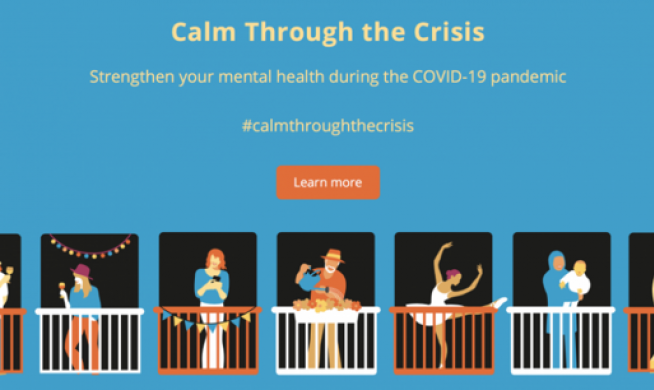
University of Jaume I de Castellon (UJI) : Explanation of EU projects of the Horizon 2020 program in particular H-Work
One of the project partners is the University of Jaume (Spain) and explains to society the results and the European projects of the Horizon 2020 program such as H-Work. YouTube:
Consortium
14 partners – 9 European countries:
- 7 universities
- 2 SME’s
- 2 European Associations/Networks
- 1 Public health service
- 1 Private company
- 1 no-profit organization

_w398_h138_1.png)
_w306_h332_1.jpg)
RECOVER-E workshop at EPA 2020 Virtual Congress
By: Anna Leybina
Annual Congress of European Psychiatrists’ Association (EPA), initially planned in march 2020, was postponed till July 2020 due to Coronavirus. Later it became the first virtual congress, which allowed thousands of participants from around the world to attend live sessions, watch pre-recorded presentations, and e-posters, chat in diverse virtual networking lounges, and visit virtual booths. This was an excellent opportunity for international knowledge and expertise exchange in the new settings.
The program was discussing broad topics related to mental health and were found to be beneficial for psychologists, educators, community managers, and policy makers. One example of this such beneficial interdisciplinary session was the Workshop “Successes and Challenges in Advancing Community-Based Mental Health Care in Europe: Reflections from the Recover-E Project”.
View the photogallery here below for visuals of the virtual congress. (Click on images to view enlarged).
Where Dr. Laura Shields-Zeeman, Project Leader for Recover-E project ( see her interview in our previous News Magazine) provided a general overview of the Recover-E project. She talked about the ideology of the Project. Where evidence-based peer worker groups integration and community based mental health service development made it possible to transit some part of institutional care into community, decreasing in 24% the need in institutional care. Laura told about the Project structure and goals and reported on the progress. She mentioned that although the countries of the project and communities themselves are different, they face similar challenges and develop the project by each site’s unique approach and experience. Yet, there is a need in creation of standardized policy influencing processes and templates, and introduction of peer workers with local regulations.
Dr. Guadelupe Morales Cano (Fundación Mundo Bipolar) talked about the way Recover-E peer workers were introduced to mental health care delivery ensuring common standards, procedures and norms.
Dr. Jana Ghihai, Senior Mental Health Advisor, Psychiatric department of Medical University presented the way Recover-E has been operating in Moldova. Besides a detailed description of the process and preliminary achievements, Jana shared the way Recover-E project was modified and used during COVID-19 pandemic to support community mental health.
It is possible to admit that the EPA 2020 virtual congress proved that distance and virtual format is not an obstacle for knowledge exchange. The next EPA 2021 congress will be held 10-13 April in Florence, Italy with the congress moto “Personalising and Integrating Mental Health Care in the Digital Era“.
_w1616_h404_1.jpg)
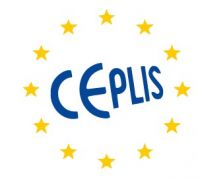

CEPLIS Position Paper
Position Paper of CEPLIS on the issues faced by the Liberal Professionals in the post-COVID-19 confinement reality.
Brussels, June 2020.
Executive summary
Liberal Professional SMEs are important for growth and employment in Europe. All future EU legislation relating to SMEs and entrepreneurship and all economic support measures for companies (short work, secured loans etc.) must take into consideration the specificities of Liberal Professional SMEs and their importance for growth and employment.
-
Most of the Regulations of the Liberal Professions are guarantees of Quality of Professional Advice, Public Health and Safety
The COVID-19 Crisis once again clearly demonstrated how dependent our society in Europe and worldwide is from professional excellence based on high-quality qualifications sustained by continuous professional development. In the case of the professions of healthcare this has been saluted and celebrated publicly by society as a whole. Other liberal professions have supported the system from the second row, e.g. by engineering excellence for health infrastructure and technology, to support increased need of digitalization at all levels, by re-launching the economy with planning of building and infrastructure projects etc. ... We feel that this must lead the EU institutions to re-think their approach to national professional regulations, in particular those that are conceived in order to maintain high standards in both ethics and quality of work delivered to the citizen, our patient and client. Risking the quality of the outcome of the work of liberal professionals because of a will of deregulation as an ultimate goal, the benefits of which on activity and employment have not been proved, must stop immediately. Europe is a knowledge-based economy that needs to enhance and not diminish its professional excellence.
There is a need for more highly qualified Liberal Professionals in the EU
EU citizens should be encouraged to turn only to their qualified professionals for every question relevant to their expertise. CEPLIS strongly believes that the EU institutions must fund public awareness campaigns aiming at explaining to the public that only qualified professionals can provide responsible information on issues related to their field.We also request EU financially support to Member States in order to enable them to recruit necessary staff to keep up with health services and to ensure timely services to patients who were unable to be examined during the confinement.The provision of the EU Directive on the Mutual Recognition of Professional Qualifications establishing Common Training Frameworks (CTF) in order to facilitate freedom of movement of professionals whilst keeping away “the bad apple” is also relevant in this case. (CTF) ensures same standards of training, education and professional ethics within a profession across all EU countries. We urge the EU to fast track the process of establishing Common Training Frameworks.
Liberal Professionals must always have the means to protect themselves whilst exercising their tasks
Professionals must have always access to means of protection and sometimes receive necessary training and technical support in order to perform their tasks with the minimum level of health risks for them and their clients or patients. Liberal Professionals of all sectors must be helped to overcome the post-confinement crisisThe measures to support and revive the economy at European level must explicitly include liberal professional enterprise, which is too often forgotten.European professional organisations should also be included in these measures.Moreover, several liberal professionals do not form part of SME's but are self-employed. Therefore, funds should be accessible to them as well and the process of applying for them should be simplified for these individuals who do not have their own staff.The liberal professions welcome the fact that the recent European strategy in favor of SMEs published by the European Commission on the 10th of March reflects an awareness of this difficulty. More information nevertheless must be given about existing programs such as access to finance and the said programs must be promoted by the Members States.Support measures – such as the possibility for “short-time work” that is currently available in many EU Member States and partly covers personnel costs for a limited duration of time – against the termination of employment contracts need to be open to liberal professionals and their employees. We expect the SURE system (Support to mitigate Unemployment Risks in an Emergency) to provide replacement income for the most affected liberal professionals and partial unemployment measures for employees in our field.
The next EU Budget must support Liberal Professional SMEs and promote entrepreneurship, innovation and digitalization in our sector
The next EU budget must be able to support the investment and innovation efforts of liberal professionals SMEs, in particular to ensure the necessary ecological and digital updating.The liberal professions call for the rapid implementation of measures in favor of States, private companies and job protection based on the 540 billion EUR plan approved by the national finance ministers on the 25th of April.
In addition, they expect the €750 billion recovery plan proposed by the Commission on 27 May and submitted for the approval of the States that it reinforces, among others the economic dynamism of small and micro-enterprises, and in particular liberal professional businesses. CEPLIS requests from the European institutions a clear support to small liberal professions by grants and very affordable loans; a support to entrepreneurs who engage new staff or who do not terminate existing labor contracts; and a support to mobility of labor forces for sectors in need by an increased flexibility of the applicable rules.
Strengthening the role of Liberal Professional Representative Bodies within the social dialogue
Strengthening the role of Liberal Professional Representative Bodies as important Social Partners that can contribute to societal needs and therefore should to be involved in all democratic processes of consultation prior to any new legislation will be an important measure proving that we have learned something from the crisis.This is why we call for the formal recognition of CEPLIS as a Social Partner representing the liberal professions’ sector so that our voice can be taken into account in the construction of solutions to the crisis but also for the development of a stronger and ever-closer Union.EUA European University Association Newsletter May 2020:
Covid-19 and universities
EUA has published a briefing on “The impact of the Covid-19 crisis on university funding in Europe”. This publication highlights lessons learnt from the 2008 global financial crisis, drawing on the wealth of knowledge gathered over more than a decade through the EUA Public Funding Observatory. The report comes at a crucial time as the European Commission this week unveiled a new long-term budget proposal, together with a historic economic recovery plan for the Covid-19 crisis.
A dedicated page on EUA’s website highlights how the Association is supporting members during the pandemic. It is a part of EUA’s ongoing efforts to facilitate the sharing of crisis-related good practices and knowledge among members. The page also gathers useful information, expert perspectives and news on European-level policy developments.EUA – European University Association
Policy Brief - Recognition of professional qualificationsBy Howard Davies
This policy brief gives an update on aspects of the recognition of professional qualifications that are particularly relevant to European universities.It includes a brief digest of some of the significant features of the 2016-2020 period, including the implementation of the European Commission’s Professional Qualifications Directive, the Proportionality Directive and the Common Training Frameworks. It also provides a glance at professional qualifications in the context of the new Commission, with a focus on the Green Deal, the One Health initiative and Mutual Recognition Agreements. Finally, the brief looks at Brexit, specifically the provisions of the Withdrawal Agreement and the prospects for a future EU-UK Association Agreement, in relation to the overarching topic.
- A brief digest of some of the significant features of the 2016-2020 period
- A glance at professional qualifications in the context of the new Commission headed by President von der Leyen
- Brexit

-
Large-scale online survey across EU
EUROFOUND EUROPE :
Living, working and COVID 19: First findings April 2020
Dublin, April 2020.
Abstract
In the space of just a few weeks, the COVID-19 pandemic caused by the novel coronavirus has radically transformed the lives of people around the globe.
Apart from the devastating health consequences on people directly affected by the virus, the COVID-19 pandemic has had major implications for the way people live and work, affecting their physical and mental well-being in a profound way.To capture the immediate economic and social effects of this crisis, Eurofound launched a large-scale online survey across the European Union and beyond on 9 April.
Entitled Living, working and COVID-19, the aim of the survey is to investigate the impact on well-being, work and telework and on the financial situation of people living in Europe. It includes a range of questions relevant to people across various age groups and life situations. Most of the questions are based on Eurofound’s European Quality of Life Survey (EQLS) and European Working Conditions Survey (EWCS), while other questions are new or were adapted from other sources, such as the EU Statistics on Income and Living Conditions (EU-SILC).
Key findings
Countries hardest hit by the pandemic see most significant impact on their well-being. Results from some countries are particularly striking, with life satisfaction in France now at its lowest compared to surveys carried out before the crisis.
Over half of EU respondents are concerned about their future as a result of the COVID-19 crisis, with only 45% feeling optimistic. In contrast to surveys carried out before the pandemic, countries like France, Belgium, Italy and Greece are seeing optimism drop below the EU average.
People across the EU are reporting dramatically low levels of trust in the EU and in their national governments, particularly in several traditionally pro-EU Member States such as France, Italy and Spain, raising fundamental questions about perceived EU action during the crisis.
More than one-quarter of respondents across the EU at this stage report losing their job either temporarily (23%) or permanently (5%), with young men most affected. Half of those in work are also seeing their working hours reduced, especially in Romania, Italy, France, Cyprus and Greece. The Nordic countries have reported fewest reductions in working time.
Almost 40% of people in Europe report their financial situation as worse than before the pandemic – double the numbers reported in surveys before the crisis. Close to half are indicating their households cannot make ends meet and over half report they cannot maintain their standard of living for more than three months without an income. The situation is even more dramatic for three-quarters of those unemployed who cannot get by for more than three months with 82% reporting their household has difficulty making ends meet.
Eurofound (2020), Living, working and COVID-19: First findings
Blogs & newsletters
Here is a list of interesting blogs to follow and newsletters to subscribe to:
Clinical Psychology in Europe
Health and Care Professions Council (UK)
European Commission Public Health-EU: e-newsletter
International Association of Medical Regulatory Authorities (IAMRA)
European Parliament IMCO (Internal Market Committee)
United Kingdom: Professional Standards Authority (UK)
European Social Network ESN
Ireland: CORU Regulating Health + Social Care Professionals (Ireland)
Healthcare Professionals Crossing Borders HPCB
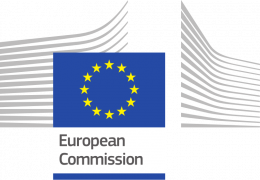
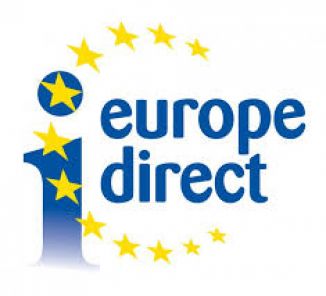
In person:
All over the European Union there are hundreds of Europe Direct information centres. You can find the address of the centre nearest you at: https://europa.eu/european-union/contact_enOn the phone or by email:
Europe Direct is a service that answers your questions about the European Union. You can contact this service:
by freephone: 00 800 6 7 8 9 10 11 (some operators may charge for these calls),
at the following standard number: +32 22999696 or
by email via: https://europa.eu/european-union/contact_en
EU publications
You can download or order free and priced EU publications here Multiple copies of free publications may be obtained by contacting Europe Direct or your local information centre

EU law and related documents
For access to legal information from the EU, including all EU law since 1952 in all the official language versions, go to EUR-Lex at:
http://eur-lex.europa.eu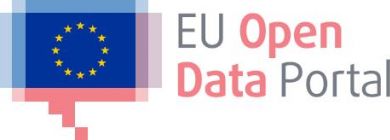
Open data from the EU
The EU Open Data Portal ( http://data.europa.eu/euodp/en)
provides access to datasets from the EU. Data can be downloaded and reused for free, for both commercial and non-commercial purposes.(1)_w466_h334_1.png)
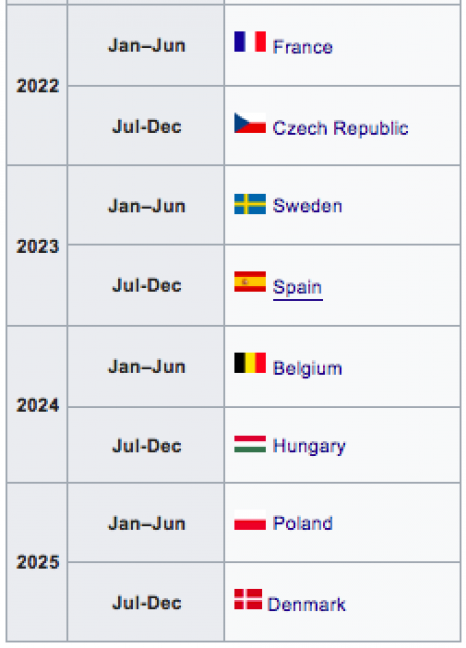
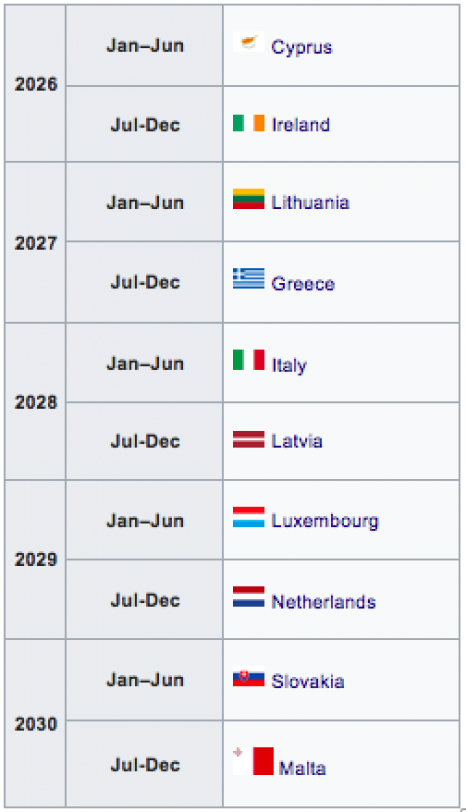
-




_w200_h200_1.jpg)
_w200_h200_1.jpg)
_w200_h200_1.jpg)

